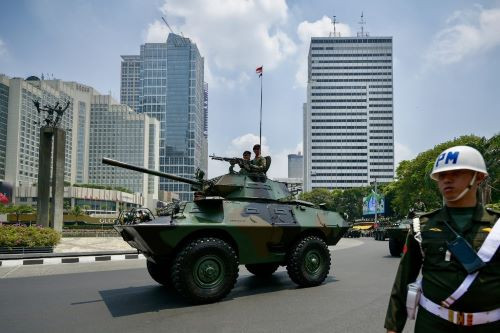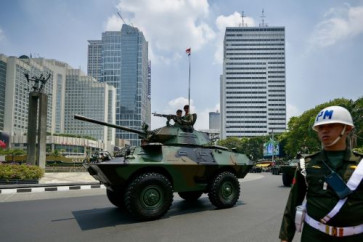Popular Reads
Top Results
Can't find what you're looking for?
View all search resultsPopular Reads
Top Results
Can't find what you're looking for?
View all search resultsPrabowo’s defense modernization: Ambition or balance of power?
President Prabowo’s arms procurement strategy will be shaped by balancing relations between key global powers as Indonesia seeks to modernize its military without compromising its non-alignment policy.
Change text size
Gift Premium Articles
to Anyone
P
rabowo Subianto’s inauguration as Indonesia's eighth president has sparked a range of reactions, some hopeful, others skeptical and many uncertain about what lies ahead.
During his previous tenure as defense minister, Prabowo consistently aimed to modernize the Indonesian Military (TNI) by securing advanced technologies through various arms deals with partner countries. Although not every procurement provided the benefit he was hoping for, some were successfully implemented.
Now, with his new role and greater authority, Prabowo’s challenges may stem from the scale of his own ambitions and the geopolitical implications they bring. As a globally minded nationalist intellectual, he understands that Indonesia's military needs more than the conventional arms deals seen in the past.
While he seeks equitable terms in defense acquisitions, as he did during his time as defense minister, he is also aware of the geopolitical trade-offs involved if he continues to pursue these sensitive objectives.
The traditional “free and active” foreign policy and non-alignment approach is likely to persist, though some experts speculate that Prabowo may lean more toward the West. However, the announcement of Indonesia’s intent to join BRICS surprised many, demonstrating that Prabowo aims to engage with all sides impartially.
This approach offers optimism to global arms manufacturers, as it suggests the new president will not rely solely on one country or axis of power. It is important to note that as a committed nationalist and firm believer in Sukarno’s principles, Prabowo recognizes the importance of Indonesia's self-reliance, leveraging external powers strategically to serve its national interests.
Along with Sjafrie Sjamsoeddin, his long-time friend and now defense minister, Prabowo plans to balance and diversify Indonesia's arms acquisitions. This strategy encompasses critical aspects like technology transfer (ToT) agreements and meeting a high level of domestic content (TKDN) for each new military asset.



















